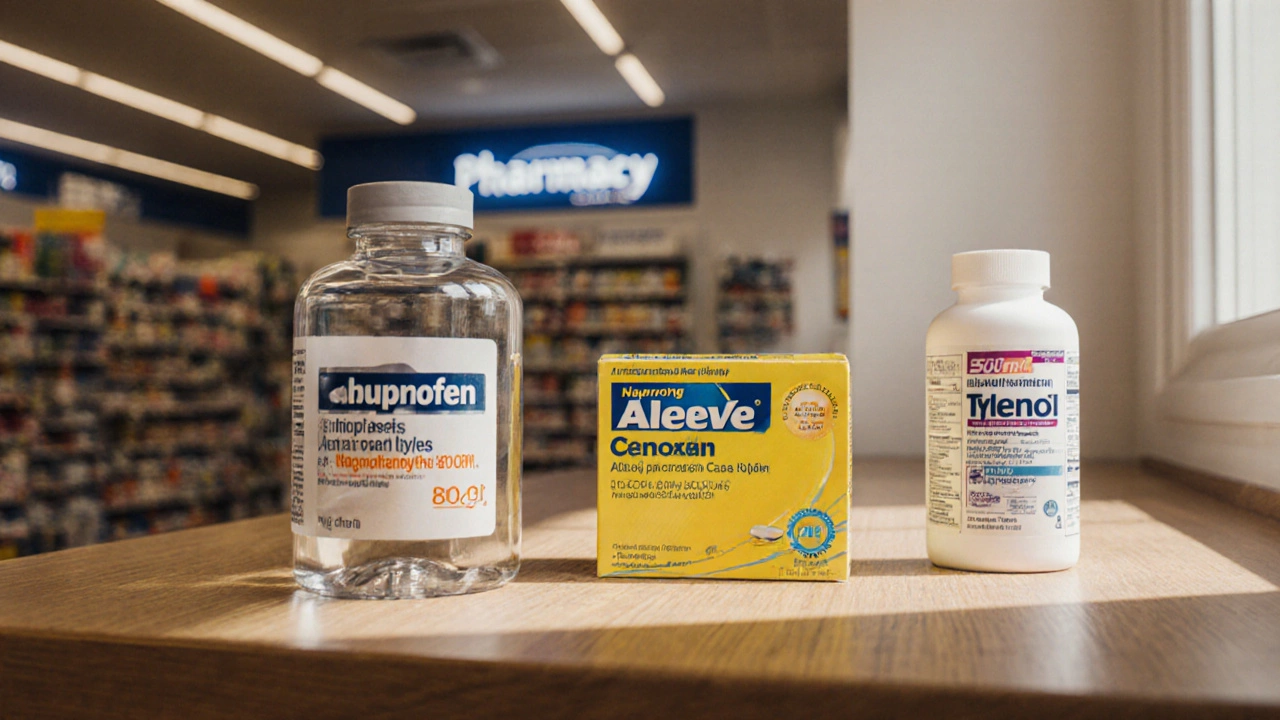Ibuprofen: How This Common Pain Reliever Works and What to Watch For
When talking about ibuprofen, a widely used non‑steroidal anti‑inflammatory drug (NSAID) that eases pain, reduces fever, and lowers inflammation. Also known as Advil or Motrin, ibuprofen is available without a prescription in most pharmacies. It belongs to the NSAID family, which also includes naproxen and aspirin. These drugs share the ability to block cyclo‑oxygenase enzymes, a key step in the body’s pain‑and‑inflammation pathway. Because of that, ibuprofen helps many people manage headaches, muscle strains, and minor surgical aches. Understanding its role in pain relief sets the stage for using it responsibly.
Dosage, Side Effects, and What to Watch When You Mix It
Typical adult dosing for ibuprofen is 200‑400 mg every 4‑6 hours, never exceeding 1,200 mg per day without a doctor's advice. Short‑term use at these levels is generally safe, but higher or prolonged doses raise the risk of stomach ulcers, kidney strain, and increased blood pressure. One major concern is drug interactions, especially with blood thinners like warfarin, certain antidepressants, or other NSAIDs. Mixing ibuprofen with these agents can amplify bleeding risk, something surgeons emphasize before any operation. That’s why patients heading into surgery often stop ibuprofen a few days beforehand, as noted in our guides on surgery preparation and pain management. If you have asthma, heart disease, or a history of ulcers, a quick chat with your GP can clarify whether ibuprofen fits your health profile.
Beyond the basics, ibuprofen ties into many of the topics covered in our article collection. For example, we explore how chronic pain sufferers can combine ibuprofen with physical therapy for faster relief, why doctors may recommend alternative OTC options when kidney function is a concern, and how to read pharmacy discount programs like GoodRx. Knowing when ibuprofen is appropriate, when to switch to a prescription option, and when to call a GP can save you hassle and protect your health. Below you’ll find a curated set of posts that dive deeper into surgery costs, pain‑relief strategies, and the role of over‑the‑counter meds in everyday wellness.

